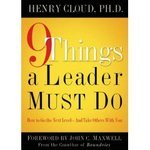Imagine a 10-year-old student you have known. Now pause, and think about their schooling and what they have really learnt at the age of 10.
Consider how little they really know in mathematics and english.
Their drawing is good, but they are no designer.
They have creativity but their cognitive skills are lacking.
Now, imagine the 10-year-old finishing school for good. Then you discover they have no access to books or libraries or the internet and you realise the child’s lifetime intellectual learning is over.
Gone is the opportunity to learn more about science or maths or design or art. Gone is the opportunity to seek a University degree.
 I have just described the average student in Cambodia. Most rural children have access to a basic primary education, at which point the distance and cost increase to attend high school is so great, that the children finish school and start working on the family rice fields.
I have just described the average student in Cambodia. Most rural children have access to a basic primary education, at which point the distance and cost increase to attend high school is so great, that the children finish school and start working on the family rice fields.
If most people you knew finished school at 10, how much opportunity to develop, invent and improve would your community have?
How much opportunity would exist to improve the efficiency and productivity of your family land?
At a very basic level, how much opportunity would you have to improve water quality, sanitation and health, if your education finished at 10?
The unfortunate answer is at best, ‘very little!‘
∴
As I toured rural Cambodia recently and heard that most children finish school at the age of 10, all I could think about was my 10-year-old daughter finishing school at the end of this year. She is smart and has learnt heaps, but hasn’t yet learnt anywhere near enough for a lifetime. And if her access to books and teachers and even the internet disappeared, her future learning would be unthinkably limited.
As I thought of the implication of finishing school at 10, I realised how incredibly blessed we are to have the education and resources on offer in New Zealand.
It offers our children a lifetime of learning.
It means our children’s children will learn even more, and develop more cure’s and create more truly great things.
Education offers hope for our future!
Oh, and the one reason I think education in NZ is fantastic? Because my children continue in school until at least 16 and even then their opportunities aren’t limited. Too often we forget that.
Lesson 3 from Cambodia visit 2012: Education is pivotal for the future of communities
 I have small simple systems for everything including tracking who I have loaned books to.
I have small simple systems for everything including tracking who I have loaned books to.


 1. Preferred employers demonstrate a real commitment to continuous learning.
1. Preferred employers demonstrate a real commitment to continuous learning.